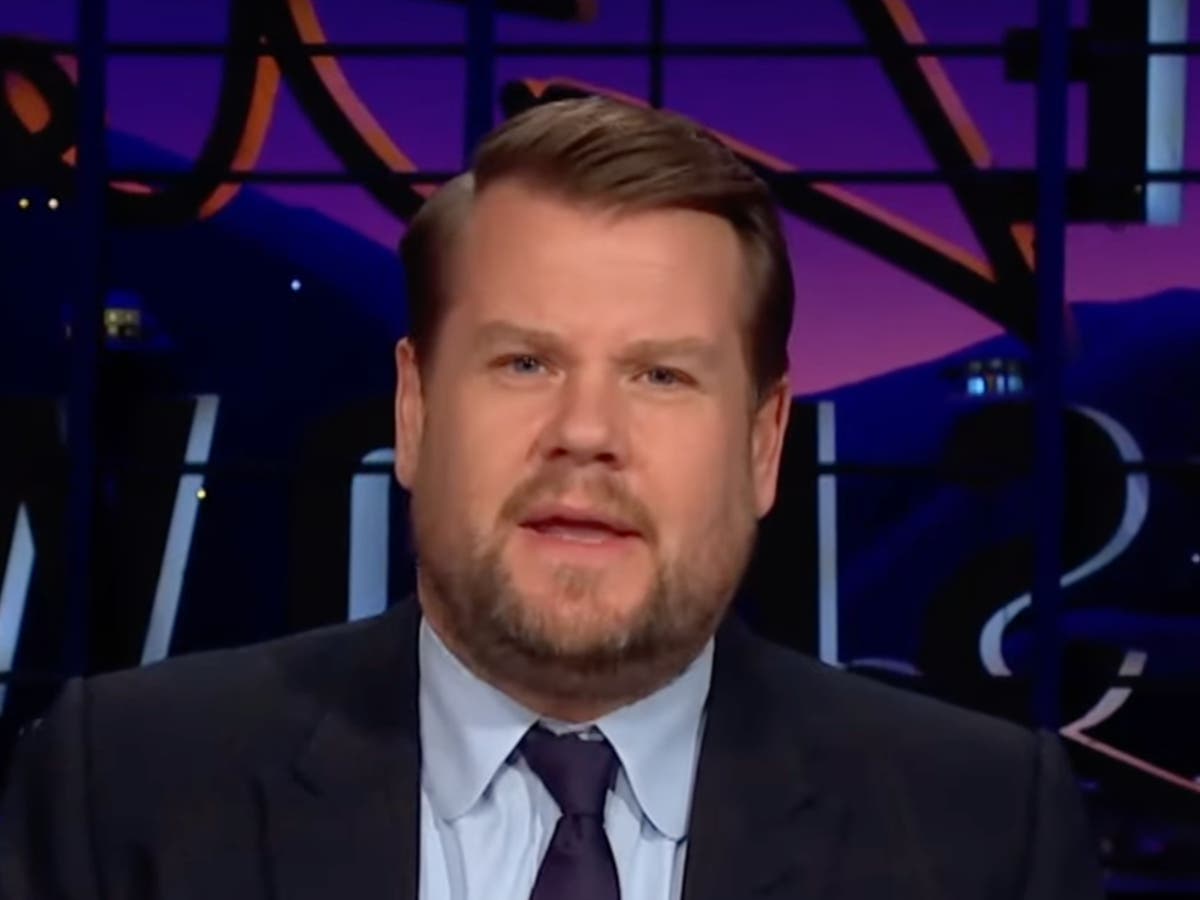James Corden has revealed he has stopped taking the popular weight loss drug Ozempic despite struggling for years with binge eating.
The Gavin and Stacey star, 46, who has been an ambassador for Weight Watchers and has previously admitted to being bullied over his weight, has revealed he used to eat jumbo chocolate bars in his car, before turning to Ozempic to help him in his battle to lose weight. But he’s already given it up, saying: “I tried it for a bit and then what I realised was I was like, ‘Oh no, nothing about my eating has anything to do with being hungry. All it does is make you feel not hungry. But I am very rarely eating [just because I’m hungry].”
I know exactly how Corden feels – it’s called having a “lightbulb moment”. And I had one too, just last week, when I finally threw my Ozempic pen away in the dustbin. I’ve never been happier not having to jab myself every week in the tummy and wait for the ticking noise to stop at the right dose.
Like Corden, I also have an addictive personality which makes food issues “tough to beat”. But while the Ozempic craze sweeps Hollywood and beyond, what isn’t mentioned is what happens when you can’t medicate yourself with comfort eating. I was left with all the stress and no comfort. It was a nightmare.
I managed to get Ozempic privately, earlier this year, after my cholesterol levels crept up to dangerous levels. I’d put on 16 kg (about two-and-a-half stone) after my two pregnancies, which I’d used as an excuse to go wild – eating anything I liked.
Like Corden, it ended up with me binge eating, often late at night (two whole packs of chocolate fingers was not unusual). I had an insatiable appetite all day for sweet treats. I would also eat healthily – but in big quantities. The more food I stuffed down me, the less I felt overwhelmed.
I felt uncomfortable in my own body. I have a small frame. Taking a weight loss drug is a personal choice and not one I think we should judge others for.
It costs about £169 a month and works by suppressing the appetite. I was a bit scared at first and had a quick carb binge before I took the first jab of the lowest dose, which gradually increased every month.
In no time, my appetite had gone – it was most extreme at the start of my Ozempic journey, as my body adjusted to the drug. I remember telling a friend that even munching a bag of lambs lettuce felt like I’d eaten a Big Mac.
It soon balanced out – and I faced the next major problem of finding ways and means to eat enough protein as a vegetarian. I know A-listers on Ozempic drink bone broth and do resistance training in bespoke gyms to counter muscle loss – but when I tried the fish broth I nearly threw up! And other than walking the dog, I simply don’t have the time or inclination to find a personal trainer.
I made sure I didn’t increase the doses as usually advised and stayed on a low dose – and the weight fell off me. I still felt hungry, but less so. But instead of feeling amazing and flaunting my body that had returned to its healthy pre-having children size, I was overcome by anxiety.
Like Corden, I had been comfort eating to push down my feelings with food – it had little to do with hunger.
When I got pregnant in 2016 and started binge eating, it was a particularly stressful time as my partner had died midway through our IVF journey. The acting out continued for years. When I felt depressed, I’d reach for a few almond croissants and I noticed my mood improve immediately. It may have been shortlived, but it was a quick fix.
Have a bad day? Eat a chocolate bar and a steal the kids’ Cornettos out of the freezer. I didn’t smoke, I didn’t drink. Food was my last vice. But it had become a problem for me – and I took a wrong turn.
I first took Ozempic soon after my elderly dad moved in with me – also a hugely overwhelming time. But once the emotional eating had stopped, I found myself opening the fridge door and simply not knowing what to do.
I’d stare at a lump of cheese and walk away; the fridge was no longer helping me. What was I meant to do now?
If there was a particlaurly hard day when I couldn’t contain the feelings of being overwhelmed juggling the kids, my dad and work, I just didn’t fancy the thought of overeating. Instead my mind whirled in circles and I couldn’t sleep. Other times, it simply didn’t matter than I didn’t feel hungry; I stole the kid’s crisps and sweet popcorn and munched the lot to get a high.
Like Corden, I discovered Ozempic doesn’t work for people like me – there is no magic cure for overeating. I had to work on my mental health, not buy into weight loss drugs. Food addiction is about trauma and mental health struggles. As many people in 12-Step programmes understand, recovery is about dealing with the feelings rather than filling a void with substances – as I had.
I might have lost the excess weight, but at what cost? No longer am I on the merry-go-round of Ozempic – I’m meditating, doing talking therapies, Pilates, and practising self-love. I don’t need an injection to solve my problems – I just need to process my emotions.

